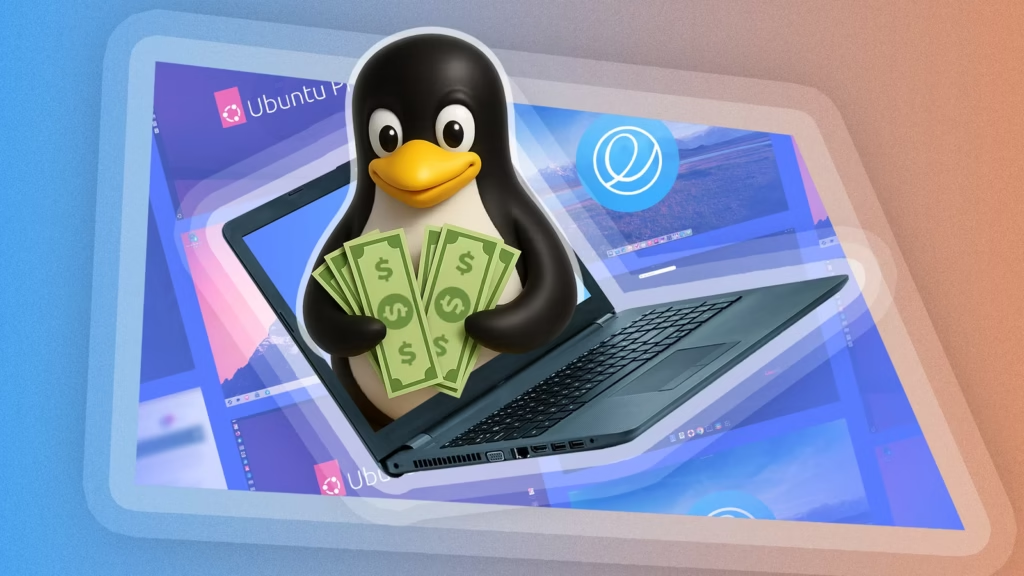Are you looking for really good open source software for your Linux computer? There are some applications that I use so much, I’d be first in line to pay if there was suddenly a price tag on it.
One of Linux’s biggest selling points is technically not a “selling” point at all: so much of it is free. Not only is the vast majority of popular distributions offered without monetary cost, but most of the software available in repositories won’t charge you anything. But that doesn’t mean they aren’t worth anything.
Finamp: Robust music streaming for Jellyfin
To avoid relying on streaming services and their ever-shifting catalogs and ever-increasing prices, I host a Jellyfin media server. In addition to being able to watch my movies and TV shows over my local network, I’m also able to stream my music collection. The first-party Jellyfin app isn’t great as a listening app, and that’s where Finamp comes in.
Finamp, especially its redesign in beta at the time of writing, is a great application dedicated just to streaming music from Jellyfin. Finamp has become my favorite Android music app, and it’s actually available on Linux as a Flatpak app as well. There, it’s slowly replacing Spotify and YouTube for me. That’s is worth something.
Heroic Games Launcher: Multi-store PC game management
I’m not a huge gamer, so I don’t spend a ton of time optimizing my Linux system for games. When I do want to play, though, and it’s a game I bought on Epic Games Store or GoG, then my go-to platform is Heroic Games Launcher. It’s a graphical app for managing your games from those stores as well as Amazon Prime Gaming.
The ease with which you can change Proton and Wine editions, adjust prefixes, and further finetune the Linux gaming experience is hard to beat. I prefer the Heroic interface over Lutris and other platforms, and I’ve managed to solve problems like enabling support for parties on Fall Guys easily with the launcher. If I had to pay a small fee for Heroic, I honestly wouldn’t mind.
KDE Connect: Desktop connectivity with your phone
Credit:
Lucas Gouveia/How-To Geek | chokchai suttinarakorn/Shutterstock
KDE Connect is one of those apps that has become ubiquitous on Linux desktops. At least, it is for me. It’s one of several apps I install on every Linux device. It’s even gained popularity outside of Linux, like for those using Mac with an Android phone.
The KDE Connect app has so many plugins that contribute to its power and usefulness I can’t cover them all here. The ones I use the most, though, are the wireless file transfer and the shared clipboard functions. It’s so convenient to be able to access from my desktop content I just copied on my phone. That kind of convenience, along with KDE Connect’s multitude of other features, is why I’d happily pay up if I had to.
KeePassXC: Manage passwords offline
A good password manager is crucial if you want to maintain control of your online accounts. Speaking for myself, I trust KeePassXC above the rest. It’s an offline password manager that doesn’t store your precious logins in the cloud.
It does involve more responsibility, since I have to look after my own vault file where all my passwords are stored. I feel confident taking on that responsibility, though, and even sync my vault across devices myself using a private self-hosted cloud server. I want to see KeePassXC continue to be developed and improved, so I’d gladly break out my wallet to support that.
Signal: Encrypted messaging
Credit: Signal
In the world of online security and privacy, there’s a lot of snake oil. One of the real McCoys, though, is Signal, which is a chat application where all conversations are end-to-end encrypted by default. This stands in contrast with many competitor apps that require you to opt in to encryption, often at the expense of popular features.
Signal has a handy desktop app, but it isn’t just for Linux. In fact, it requires regular syncing with the mobile version, but that’s fine because I also use it on my Android phone. I have secure chats on it so much that I wouldn’t think twice about supporting the project financially.
The VLC app is a touchstone of open source excellence, having been developed for years to become a very mature, very feature-rich application. You can use it to watch, listen to, convert, and stream media of all sorts and from myriad sources. From your old DVDs to online radio, it’s an app that plays it all.
Speaking for myself, I’ve mostly used VLC for testing my DVD rips and converting videos that weren’t in the right format. I’ve gotten so much out of the app that I don’t think I’d be making a mistake paying for it.
While reviewing these free applications, I decided to put my money where my mouth is and make donations to either the project itself or one of the individual maintainers. I’m hoping my contributions help ensure their continued existence and improvement.
If you’re looking for other good software that you might like to the point of opening your wallet, check out my weekly roundup of Linux apps worth trying.

